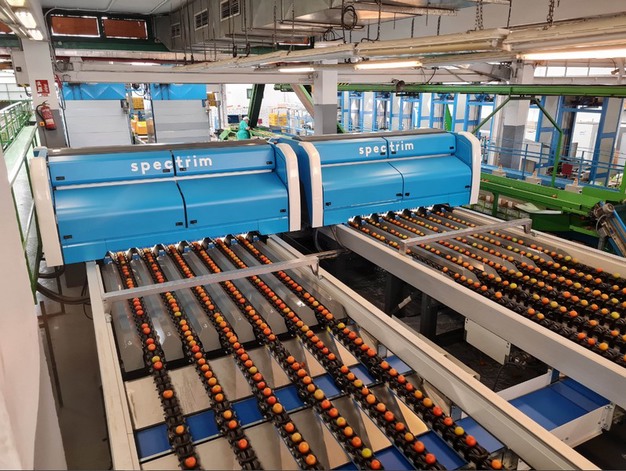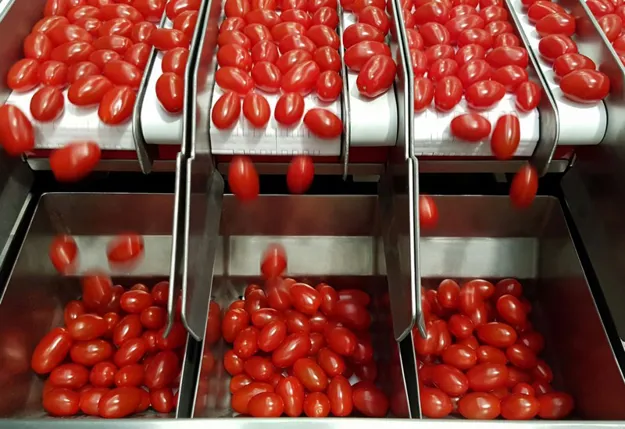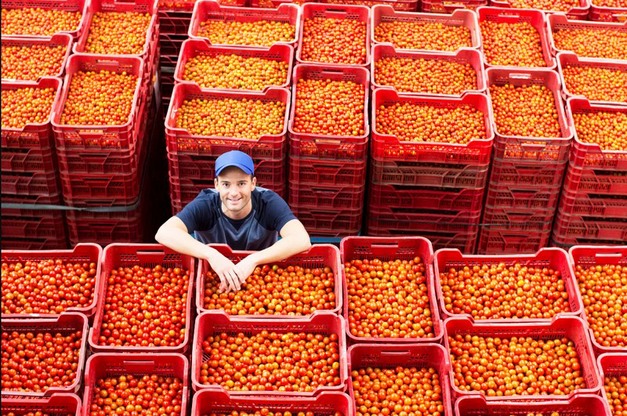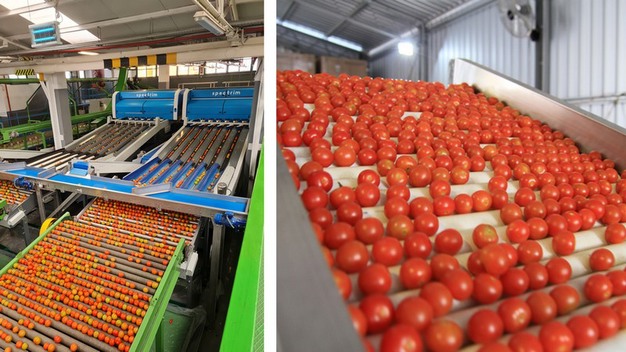In the years since tomatoes first became a widely sold food product, the key processing tasks of sorting, grading, and packing tomatoes have become much more complex. The introduction of new tomato varieties has brought a far greater range of differences in the fruit's color, size, and shape.

Retailers and consumers have raised their quality expectations to previously unobtainable levels. Exporting far across the globe has placed a premium on shelf life and the ability to forecast it. Yet two crucial measures of quality, firmness and Brix content, remain hidden from the human eye or cameras, and if the crop isn't handled gently enough at any stage during processing, all quality can be lost.
Dealing with these challenges might sound like a mission impossible – but a century since processing solutions kick-started the tomato industry, now they are helping it expand internationally by enabling processors to meet tougher market demands. "Today's state-of-the-art technologies empower tomato processors to increase throughput, reduce food waste, improve product quality, meet product specifications, maximize pack out, reduce the problems associated with dependence on manual labor, and improve profitability," the team with TOMRA food says.

In the last five years, the supplier of optical sorting and grading technologies for the food industry has broadened its offering by acquiring two innovative New Zealand-based companies, BBC Technologies, and Compac, so it is now a leading provider of integrated post-harvest-to-pack solutions. These take care of everything from tipping the fruit onto the line to packing it at the other end and are well-suited to tomatoes.
"Because these solutions are modular and scalable, they can be tailored to businesses of all sizes. And because of our control software, they can be switched from one tomato variety to another with unrivaled ease and speed", the team says - although one exception is the small, on-the-vine tomatoes, which still have to be sorted manually.

Offerings
TOMRA offers a range of technologies tailored to the specific needs of tomato processors and packhouses. For large tomatoes, TOMRA offers the TOMRA 5S Advanced sorting platform, Spectrim sorter and grader, and UltraView inspection module. These machines sort and grade tomatoes based on parameters like weight, size, shape, color, defects, and softness. The TOMRA 5S Advanced is designed for hygienic operation and features specialized software and connectivity to TOMRA Insight, a data platform.
For small snacking tomatoes, TOMRA provides the MIRA360 and Small Fruit Sorter (SFS) with the InVision2 grading system. These machines can sort tomatoes by size, color, and defects. The Spectrim sorter is also used for large tomatoes, sorting them based on surface blemishes and grading for defects.
TOMRA's filling and packing machines handle tomatoes gently and can pack different grades of fruit for different markets. The CURO filling system ensures precise, high-speed filling with the flexibility to switch between packing options. Various bin and box fillers are also available to accommodate different container sizes and weights.

All the components of TOMRA's solutions are integrated and connected, allowing seamless communication and data sharing. Operators can access live data through TOMRA Insight to improve line efficiencies and make data-driven decisions.
"Our solutions not only provide immediate value but also future-proof processing and packhouse businesses by meeting the evolving needs of the industry. These technical advancements enable businesses in the tomato industry to stay competitive and profitable in a rapidly changing environment", the team concludes.
For more information:
Marijke Bellemans
TOMRA
Tel.: +32 (0)476 74 19 18
Email: [email protected]
www.tomra.com/food
